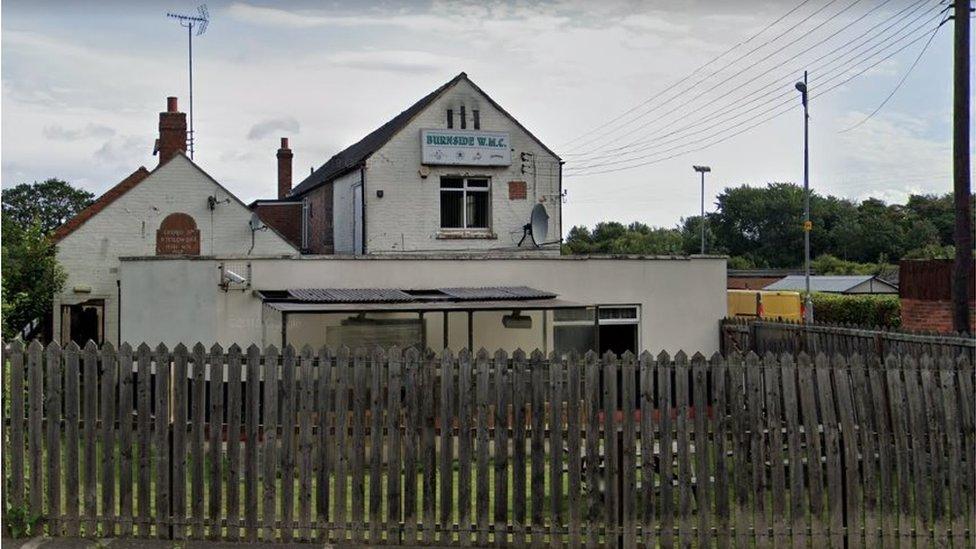Coronavirus: Restrictions expected in north-east England
- Published
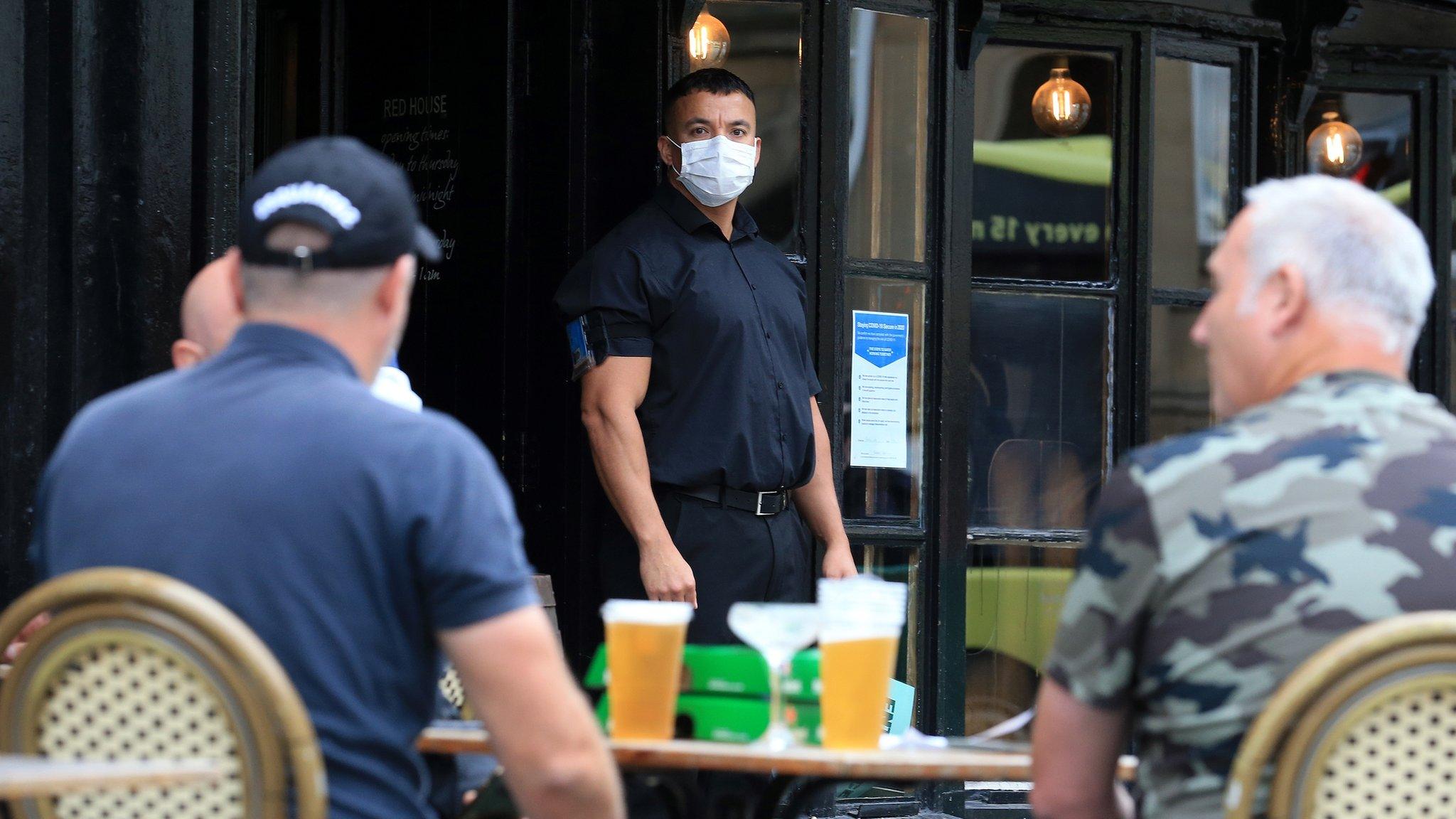
Almost two million people in north-east England are expected to face restrictions as coronavirus cases rise.
Northumberland, Newcastle, Sunderland, North and South Tyneside, Gateshead and County Durham council areas are in discussions to get the measures.
These may include pubs closing earlier and restrictions on households mixing.
It comes as Prime Minister Boris Johnson told the Sun:, external "The only way to make sure the country is able to enjoy Christmas is to be tough now."
He previously said the government was doing "everything in our power" to avoid another nationwide lockdown.
The PM also told the newspaper, external the government is promising £546m as part of a plan to help protect care homes from coronavirus this winter.
A full announcement detailing the new measures for the North East is expected later on Thursday.
"The number of cases has been rising rapidly in many parts of the country, but in particular in the North East, and so a decision has been made to impose further restrictions there," Communities Secretary Robert Jenrick told ITV's Peston programme on Wednesday.
"And a full announcement will be made tomorrow and so people living in that part of the country should watch out for that. And the measures will come into play at midnight on Thursday evening."
MPs from the area met with Health Minister Nadine Dorries on Wednesday evening.
BBC Newsnight political editor Nicholas Watt, external said a Labour MP told him measures would include pubs closing at 22:00 BST, no mixing with other households and public transport only for essential travel.
'Not a full lockdown'
Newcastle City Council leader Nick Forbes said the temporary measures would mainly be a restriction on social gatherings.
"The evidence we've found from local testing is that it's spreading in three main areas: in pubs, in people's homes and in grassroots sports," he said.
"So [council leaders] have put together a series of requests to government for additional restrictions around these areas for a fixed period of time to try to prevent a damaging full lockdown."
The council leaders had also requested additional funding for policing to enforce the measures, as well as additional local testing facilities, Mr Forbes added.
"All of the testing facilities in our region are more or less at full capacity every day - we're hearing stories of people being sent 200 miles to get a test and that's not acceptable.
"That's why we've asked as council leaders for more resources immediately, because we need to make sure anyone with symptoms gets an immediate test and gets the result back straight away."
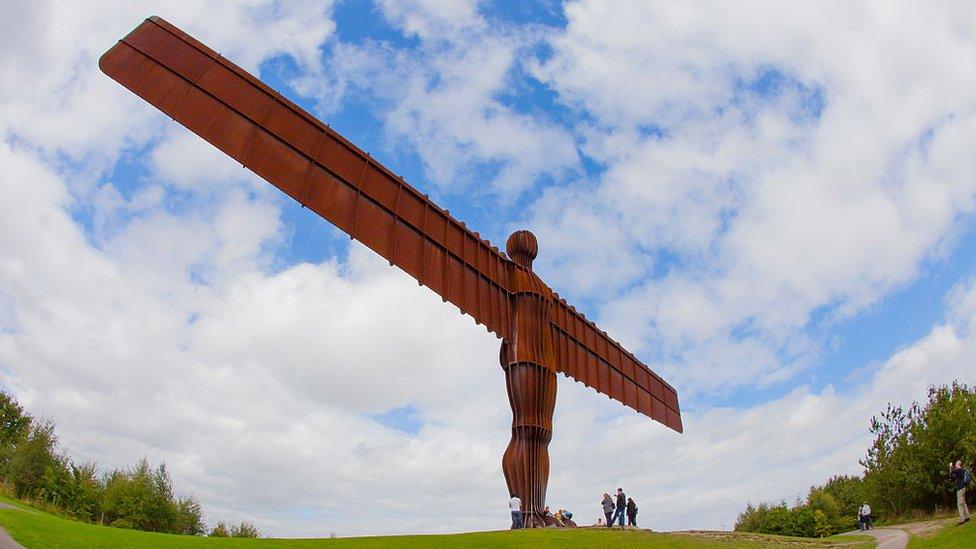
Gateshead is among the areas due to face tougher local restrictions
The North East has seen a resurgence of coronavirus in recent weeks and four boroughs were last week placed on the government's watchlist for areas needing "enhanced support".
On Monday, councils in the seven areas of Newcastle, Northumberland, North Tyneside, South Tyneside, Gateshead, County Durham and Sunderland called for new restrictions.
BBC analysis of the government's figures shows that, as of Wednesday, Bolton had the highest rate in England at 204.1 per 100,000 people in the week to 13 September.
Sunderland's rate was 82.1 per 100,000 people, South Tyneside was 93.4, Gateshead was 81.7, Newcastle was 64.1, North Tyneside was 46.7, with County Durham at 37.4 and Northumberland at 25.7.
In total there were 1,106 new cases in a seven-day period.
A spokesman for the Department of Health and Social Care said: "We constantly monitor infection rates across the country and keep all measures under review in consultation with local leaders.
"Any changes to local restrictions will be announced in the usual way."

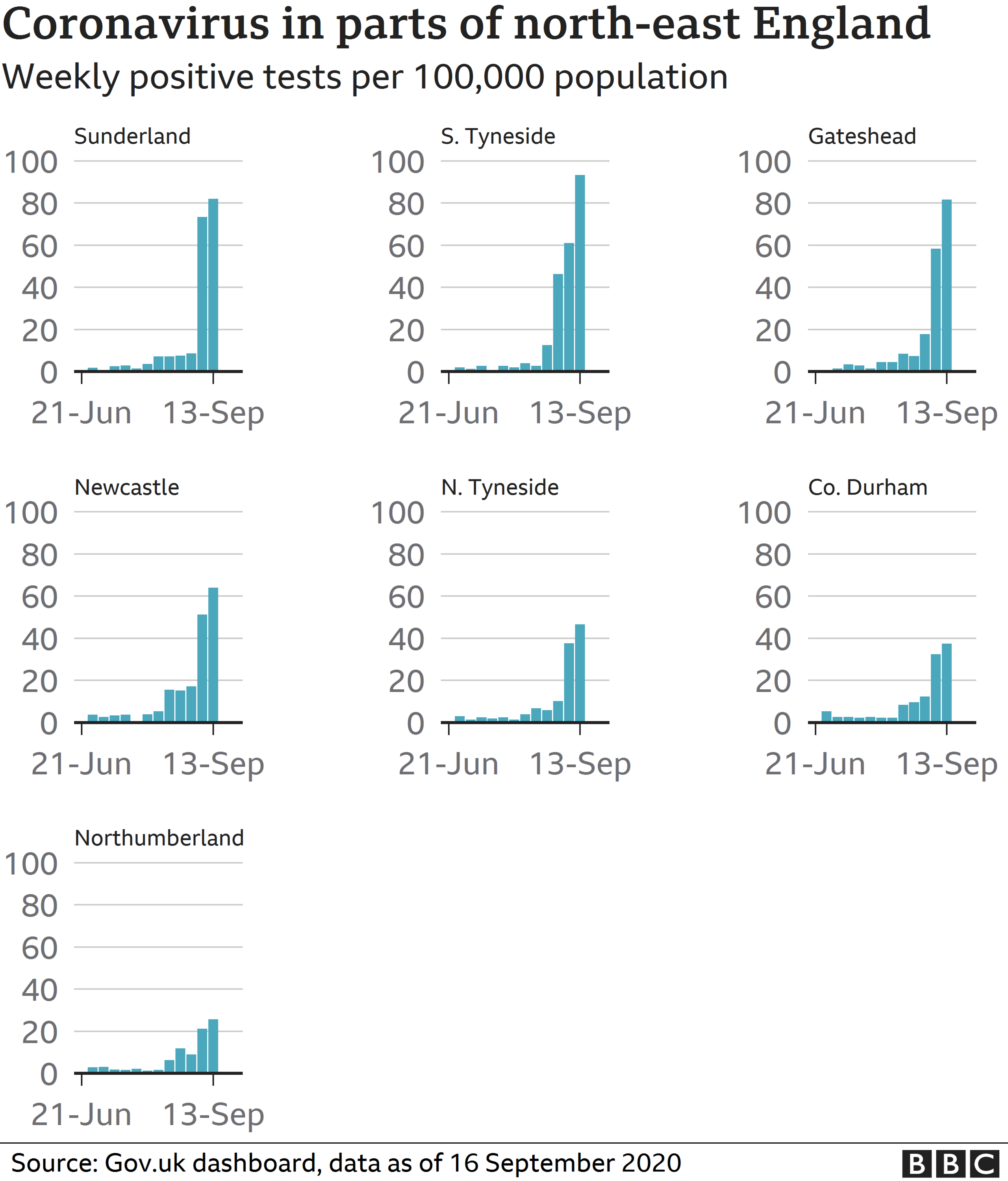

Other parts of the UK, including Birmingham and Greater Manchester, are already subject to increased measures.
In an interview with the Sun, external on Thursday, Mr Johnson compared the graph showing UK virus cases to the humps on a camel's back, saying the aim is to "stop the surge" in cases and "flatten the second hump".
He said he did not want to lock down sections of the economy, but that the government "will be looking at" requiring pubs to close early.
On Wednesday, the prime minister told a committee of MPs a second national lockdown would be potentially "disastrous" for the UK.
He admitted there was not enough testing capacity - amid widespread reports of difficulties obtaining them - and said new nationwide restrictions such as the "rule of six" were necessary to "defeat" the disease.
Coronavirus cases across the UK increased by 3,991, taking the total to 378,219, according to figures from the government., external

Analysis - Daniel Wainwright, BBC England Data Unit
While parts of north-west England have consistently had the highest rates of new infections for some time now, areas of the North East have also been reporting big increases.
In the week to 30 August Sunderland had 24 cases. Two weeks later it was 228.
The rise in South Tyneside was also very large, up from 70 cases in the last week of August to 141 in the week to 13 September.
Parts of the region are recording rates they haven't seen since May, when the country was still subject to most of the full lockdown measures.
Testing capacity has increased since then but there have been shortages due to the recent surge in demand.


SOCIAL DISTANCING: What are the rules now?
SUPPORT BUBBLES: What are they and who can be in yours?
FACE MASKS: When do I need to wear one?
TESTING: What tests are available?

Follow BBC North East & Cumbria on Twitter, external, Facebook, external and Instagram, external. Send your story ideas to northeastandcumbria@bbc.co.uk.


Do you live in one of the areas where restrictions are being reintroduced? How will you be affected? Do you have any questions? Share your views and experiences by emailing haveyoursay@bbc.co.uk, external.
Please include a contact number if you are willing to speak to a BBC journalist. You can also get in touch in the following ways:
WhatsApp: +44 7756 165803
Tweet: @BBC_HaveYourSay, external
Please read our terms & conditions and privacy policy
- Published17 September 2020
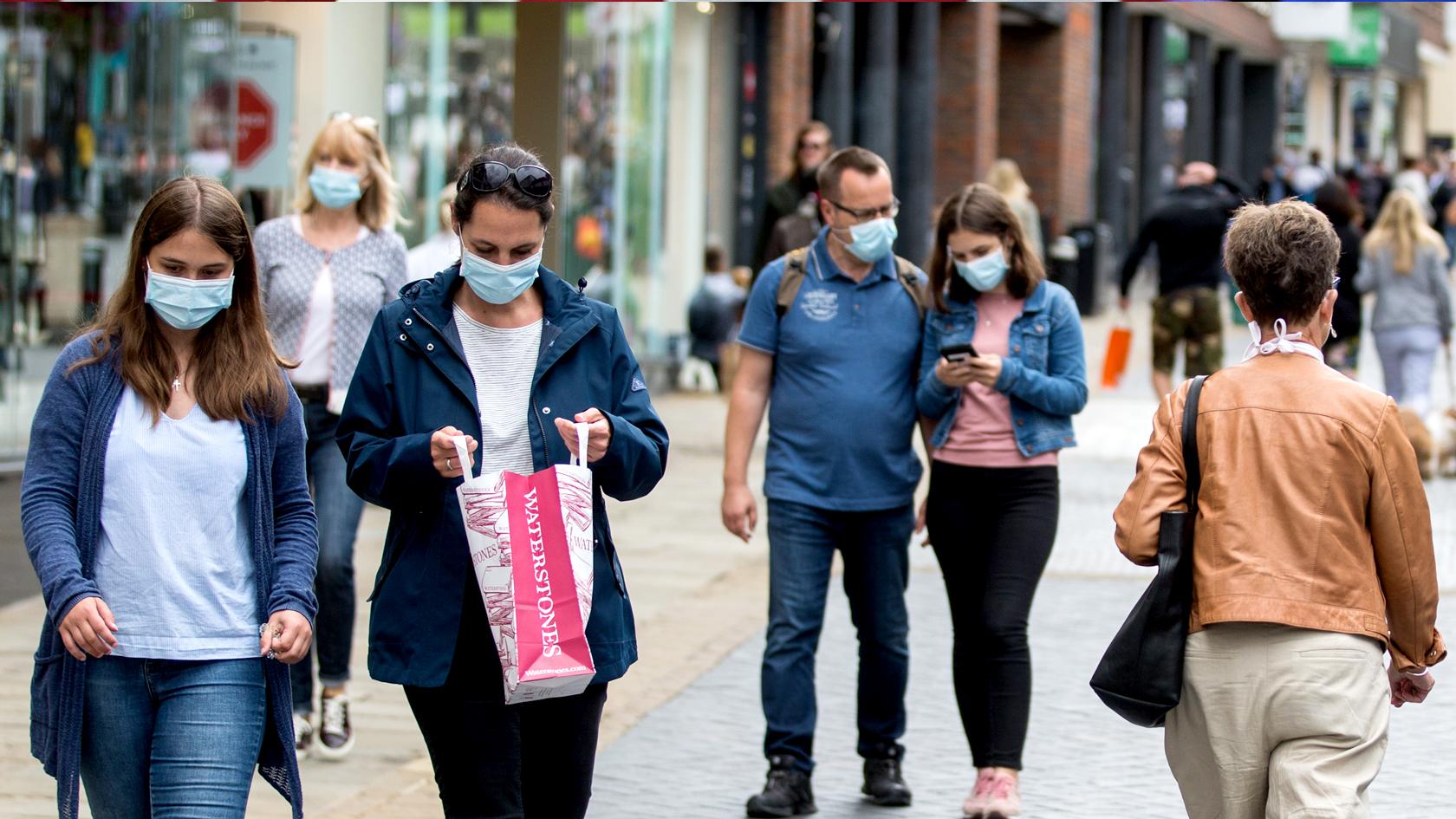
- Published11 September 2020

- Published8 September 2020
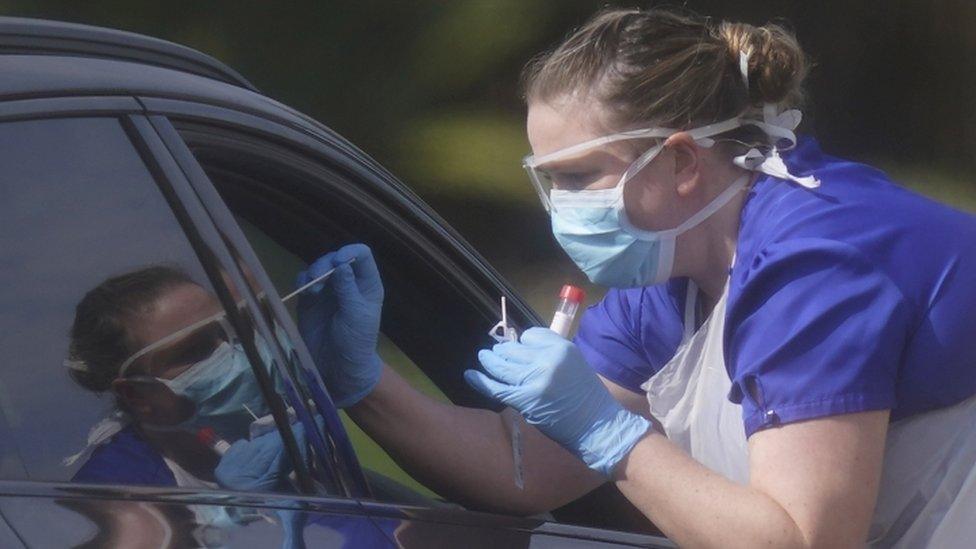
- Published7 September 2020
